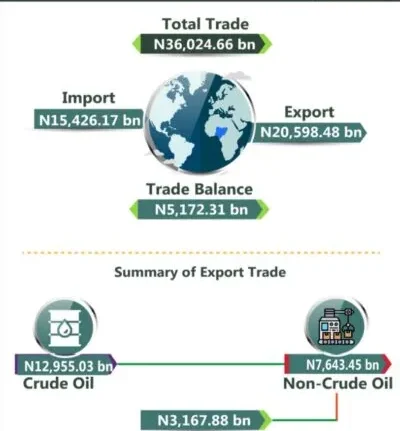Nigeria’s petrol import bill saw a significant decline in the first quarter of 2025, plunging to ₦1.76 trillion, compared to ₦3.81 trillion recorded in the same period in 2024. This represents a sharp drop of over ₦2 trillion, according to recent trade data.
The reduction is widely attributed to a combination of factors, including:
Operational readiness of local refineries, particularly the partial commencement of domestic refining at facilities such as the Dangote Refinery;
Reduced consumption due to subsidy removal and higher fuel prices, leading to more cautious use of petrol;
Government efforts to tighten importation processes and promote energy efficiency.
The development marks a notable shift in Nigeria’s fuel import dependency and could have far-reaching implications for the country’s foreign exchange savings, trade balance, and fuel security strategy.
Industry analysts say the trend, if sustained, could reduce pressure on the naira and strengthen the government’s drive for self-sufficiency in the downstream petroleum sector.


